"And We Will Be Free" Jo Eun's Story

The Tumen River starts on the slopes of Mount Paektu. Its icy waters twist and turn for hundreds of miles before slipping off the Korean peninsula and into the East Sea. In the summer, the reeds along the river grow taller than me and yellow and white wildflowers blossom along the banks.
I was born next to the Tumen. I grew up playing on its rocky shore, splashing and swimming in its waters. In the winter my friends and I would race up and down on ice skates. For my mom’s birthday, we would catch fish and cook them under the shade of a tree. I have many fond memories of the Tumen.
But I want to tell you about the times I tried to cross it. Because those times nearly cost me my life. The Tumen is more than a river. It’s a razor that cuts its way between North Korea and China. It’s a meandering border of shallow water that you can wade across in minutes. And in the winter, you can slide across its ice even faster. Just like I did for the final time last year.
I decided to cross the Tumen for the first time 8 years ago. I did it for my daughter. Her name is Hee-Mang which means hope in Korean. As a baby she was so calm and happy. I would adore her sweet smile and when I held her it melted away the pain and heartache of life in North Korea.
When she started saying “mommy” and took her first steps I was ecstatic. Her laughter was precious and her eyes beamed with life. But I was always worried that I couldn’t be a good mother.
I wanted to give Hee-Mang a better life than I had.
I knew of friends who had defected to South Korea. They sent money back and their families seemed to be much better off. So I decided to leave North Korea to make money and eventually bring Hee-Mang to freedom.
The first time I tried to cross the Tumen I didn’t get far. The broker I hired to help me escape worked for the secret police. They dragged me out of my hiding spot and sent me off to a detention center.
That’s where I first learned how much freedom would actually cost.
It was March and a pregnant woman arrived after being arrested in China. The courtyard of the detention center was covered in snow and ice. The guard forced her to walk around on her hands and knees in the snow for hours. He mocked her, saying that you got pregnant with the baby of a dog so you have to walk like a dog. Then he’d pry open her mouth and spit in it. If any of us cried or pleaded for him to show mercy, he’d force us to do the same.
When we weren’t crammed into our cells, sleeping on a filthy floor, we were forced to work. From 5am to 11pm we’d go into the mountains to gather firewood. The labor left your hands raw with blisters and the cold bit at your fingers and toes.
We were only fed a quarter of an ear of corn per meal. It was never enough and the hunger clawed at our stomachs. People grew so hungry that the guards had to drag them from the toilets so they wouldn’t eat their own feces. Some mornings I woke up to find one of my cellmates stiff and lifeless. We’d march off to gather firewood and their pale body just laid there, their cheeks hollowed out from the hunger.
One afternoon, I decided to escape. I walked over to an unlocked window, flung myself out the opening, and started running. For 4 days I trekked through the wilderness until I reached my hometown. But from the hill above my parent’s house I could see the security agents waiting for me. I had no place to go and I was terrified of being caught. I wanted to see Hee-Mang again but it was too dangerous.
So I returned to the Tumen River. It was summer now – when the rains come up from the south and the river swells into a rage. It was pouring the night I crossed and the current swept me downstream. I waded out on the other side and into China. A Chinese family gave me food and dry clothes and when I told them I needed to go to South Korea, they connected me with a broker.
I moved south through China with a group of 12 other North Korean refugees. We were nearly to Southeast Asia when we stopped to spend the night in a small motel. There were two young boys with us. They were 9 and 10 and they were running around the motel yelling in Korean. The receptionist must have overheard them.
I was on the fourth floor when I heard police sirens outside. I raced to the window but it was bolted shut with metal bars. The Chinese police barged into the room and handcuffed all of us.
There was a teenage girl with us whose mom was waiting for her in South Korea. She wailed and pleaded with the Chinese police: “Please please, can I just go to be with my mom. She’s going to be so worried about me. I just need my mom.” She cried out over and over. As a mother I felt terrible for her. I just wanted to tell her that it would be alright. But we all knew that was a lie.
We were returned to North Korea.
The secret police demanded the women strip naked and they searched our genitals for anything we might have hidden, slapping and whipping us and calling us whores the entire time. My interrogator wanted me to confess to trying to defect to South Korea. I begged her to understand my situation but instead she grabbed my head and slammed it against a nail in the wall. I remember thinking as she took a fistful of my hair “Is this my fate? Is this how I’ll die? The tears mixed with the blood pouring out of the gash in my forehead.
I couldn’t let go of the thought of Hee-Mang growing up without a mom. I wanted to be a good mother, I wanted to give her everything she deserved. I knew I couldn’t die here.
Everyone in my group but me was sent to a political prison camp, even those two little boys. But because I refused to confess to trying to defect, I avoided that fate and was instead transferred to another prison where I was forced to work 18 hours a day in a gold mine to earn money for the regime.
They worked us so hard and fed us so little. But I had a daughter waiting for me. And now more than ever, I wanted her to live in freedom. Life in prison was so difficult that I considered killing myself many times. There is a saying in North Korea “Women are weak, but mothers are strong”. Being Hee-Mang’s mother gave me the strength to withstand the pain. For two years, I endured the back-breaking work hoping for the day I would reunite with Hee-Mang.
3 years after I was released I stood next to the Tumen again, staring north and dreaming of freedom. This time I had Hee-Mang with me. She was 4 years old now and I wanted her to have a happy, fulfilling life. I wanted her to see the world and learn about other cultures. There was nothing for her in North Korea except pain and misery. So I scooped her up from her bed and carried her out of the house.
I put her on my back, her head nestled on my shoulder, and waded into the river. I was almost to the middle of the river when her foot touched the water.
Hee-Mang woke up and whimpered “Oh it’s cold.” That’s all it took.
The border guards heard her and raced down to the water. I waded faster and faster with Hee-Mang’s little arms wrapped tightly around my neck. I lunged with each step trying desperately to get away. Then I felt a hand grab my hair. Hee-Mang started screaming as I tried to fight them off. But when they ripped her from me, I had no choice. I surrendered.
They dragged us back to shore and started kicking me and stomping on my head. And then they kicked my daughter. My precious, beautiful, Hee-Mang. An innocent 4-year old girl. She was sobbing in pain and her cries for mommy were muffled by the blood spilling out from her mouth.
I jumped on top of her to cover her little body from the soldiers’ boots. I pleaded with them to beat me instead. She didn’t know what was going on.
It wasn’t her fault. “It was me, I did this! Punish me, not her!” I screamed.
--
Last year I crossed the Tumen for the final time. I could see my breath as I shuffled across the ice on my hands and knees. I crawled up the other bank into China, bent back the barbed wire, and ran for the van that was waiting for me on the other side. From the van, I looked back at North Korea and wondered if I’d ever come back or see Hee-Mang again.
This time I connected with someone that knew a group helping North Korean refugees reach safety. The group turned out to be Liberty in North Korea and they helped me move quickly out of the border region and then we headed south. I couldn’t eat or sleep until we made it out of China because I was so scared of getting caught. Every time the bus stopped, I was certain that the police had found me again.
But soon I found myself crossing the border into Southeast Asia. When LiNK’s field staffer told me I was finally safe I was overwhelmed. I had endured so much to make it this far - hard labor, imprisonment, and torture. And even though I was overjoyed to make it to freedom, I was deeply saddened that Hee-Mang wasn’t with me.
I left her with my family because I couldn’t bear the thought of her getting caught again and sent to a political prison camp. I question that decision every day.
Today I owe it to my daughter to tell my story. Hee-Mang is like a lighthouse to me. She gives me light and a reason for why I need to keep living and working hard for freedom. I hold onto the dream that one day we will live together again.
Before I left last year I bought us matching watches. It’s just a cheap watch, but to me it has more value than any jewel. When I miss her, I wear it and I have hope that each minute that passes is one minute closer to the day I will see her again.
I wouldn’t be telling this story today without the support of people like you. Thank you for helping me escape and finally reach freedom. Your willingness to help North Koreans even though you do not know our names or see our faces, is unbelievable. Your generosity has changed my life and the lives of so many others.
But most of all, you give me hope that one day I will be able to return to the Tumen River and walk hand in hand with Hee-Mang.
And we will no longer have to be afraid. Because we will be together.
And we will be free.
Thank you.
A North Korean Refugee’s Daring Escape By Boat | Gyuri Kang’s Story
Escaping from inside North Korea remains almost impossible today. Borders remain sealed by the legacy of pandemic-era restrictions, while surveillance in China continues to intensify. But in 2023, a group of North Koreans crossed into South Korean waters on a small fishing boat—a rare and extraordinary way to reach freedom. Abroad the vessel was 22-year-old Gyuri Kang with her mother and aunt.
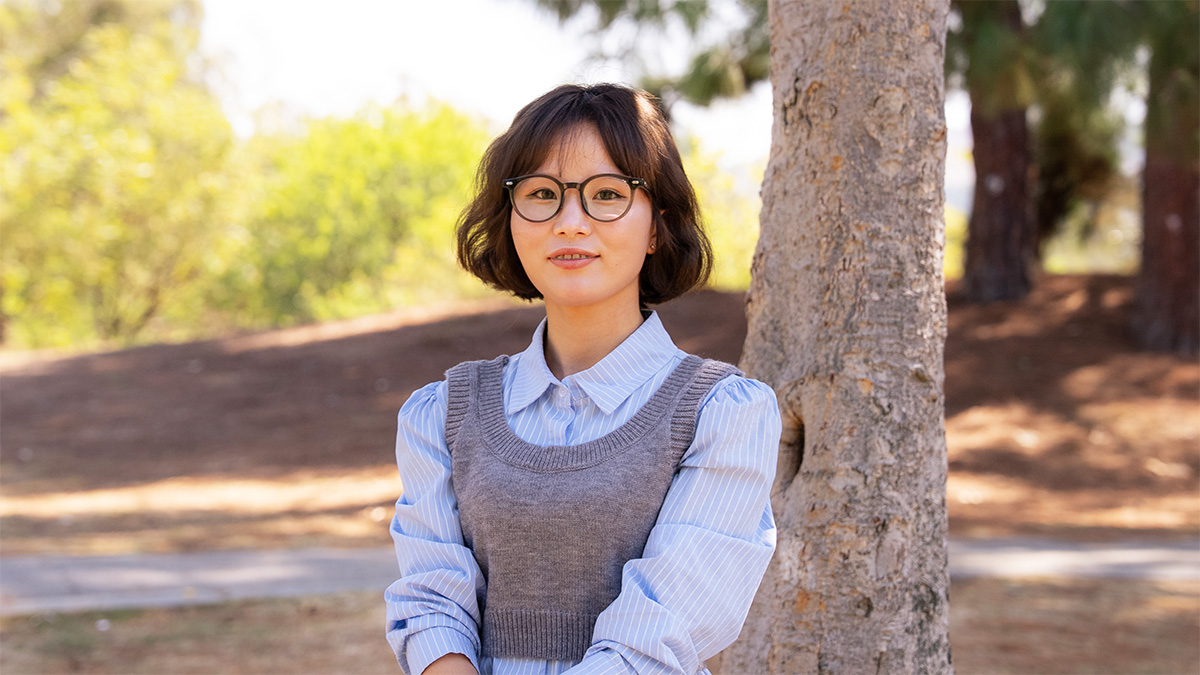
You were never supposed to know my name, see my face, or hear my story. Because I was one of 26 million lives hidden inside North Korea.
I was born in the North Korean capital, Pyongyang. The first time the government decided my future without my consent, I was only a child. My family was exiled to a rural fishing village because of my grandmother’s religion.
In the system we were living in, not even your beliefs or thoughts are truly your own.
On my way to school, youth league officers would inspect my clothes and belongings, punishing me for even a hairpin or a skirt that was a few centimeters too short. At school, we were taught that “we live in the most dignified nation in the world,” but outside those walls, people were collapsing from hunger in the streets.
Careless words overheard by a neighbor could turn into a knock at the door in the middle of the night. The radio played government broadcasts all day long, and searching other frequencies was a risk no one dared to take. This is how the North Korean government maintains control over people. By convincing you that survival depends on submission.

I returned to Pyongyang as an adult. I majored in table tennis at the Pyongyang University of Physical Education and imagined myself making a new life, built on talent and hard work.
But reality was nothing like what I had dreamed. I came to understand a deep, painful truth: In the end, everything was determined by how well you obeyed, not how hard you worked.
Frustration and emptiness built up until I finally decided to leave Pyongyang.
I wanted to help support my mother and aunt, so I moved to the coast to try and build a life of my own. My mother used all of her hard-earned life savings to buy me a small wooden fishing boat so I could start a business harvesting clams.
That boat was more than a way to make a living. It was a daily reminder of her sacrifice, and the depth of their love and trust in me. If the money I earned with my own hands could put even one less wrinkle on her forehead, that was enough for me.
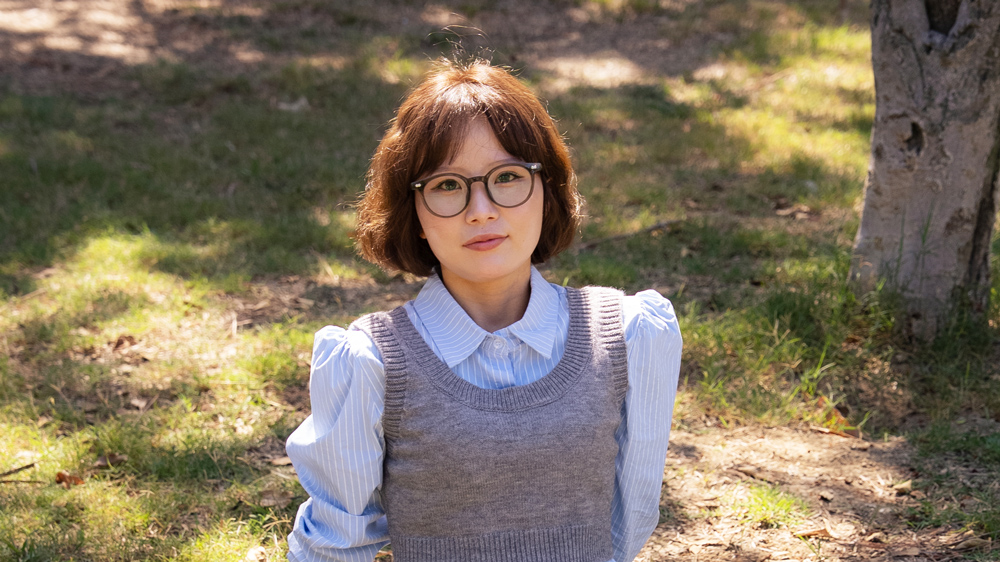
As a boatowner, I woke up early in the mornings to prepare supplies, get the crew together, and encourage them. I inspected the condition of the boat and hired people to help fix the engine and other faulty parts. Although I couldn’t go out to sea because I’m a woman, I was responsible for ensuring the ship operated smoothly.
But the harder I worked, the more government officials came to me—demanding baskets of clams and money. They justified their demands by saying: “The Party orders it,” threatening to punish anyone who refused. Every night I agonized over how to protect my people and keep my business going, and how I should respond. In those moments, I would remember the love and devotion my mother and aunt had poured into me and it gave me strength to persevere.
To escape my reality, at night I secretly watched South Korean TV shows on a television that was smuggled in from China.
My world turned upside down. With my friends who were also watching South Korean media, we would cautiously express our dissatisfaction together while also copying the hairstyles and outfits we saw in dramas. Sometimes, we would even try to mimic South Korean words or accents when talking or texting together.
But under Kim Jong Un, punishments became much more severe. Two people I knew were executed for watching and sharing foreign media. Our lives became harder, control over young people became more intense, and our resentment began to grow.
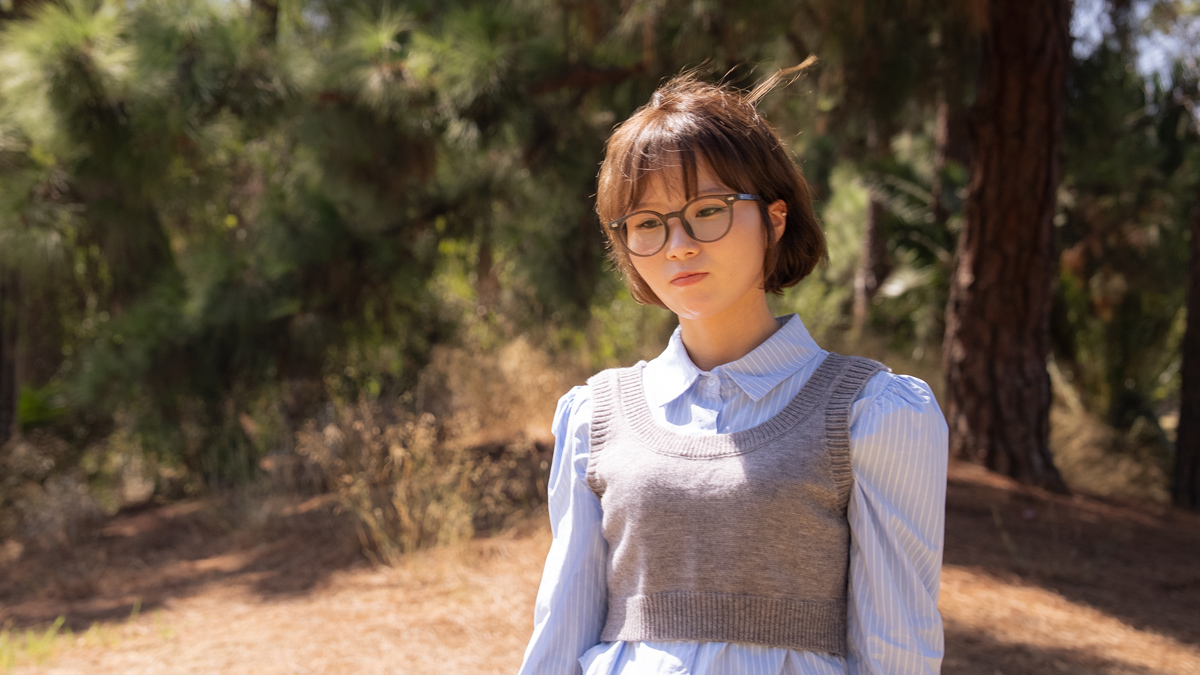
But no matter how much they tried to repress us, frustrated young people like me continued watching forbidden content as a way to forget reality. Foreign media has quietly found its way into North Korea for decades. As I grew up, it began spreading more than ever before, through USBs passed between friends or broadcasts picked up on illegal devices.
Many defectors, like me, can remember the exact episode of a TV show, a specific South Korean song, or even a traffic report, that planted the first seeds of doubt.
Of course, dramas and movies don’t tell the whole story, but they show a life that contradicts everything we were taught. And it makes you wonder: if life is so different out there, why does it have to be this way here?
I realized it doesn’t just show people that different lives exist. It gives them the belief that their life could be different. And that belief gives people the courage to choose a different future.
The thing about information is once you learn something, you cannot unlearn it. I remember watching people on my screen speak freely, laugh openly, and pursue their dreams—things that were unimaginable in North Korea. For the first time, I wondered if everything we were taught might be wrong. That doubt led to questions, and my curiosity became too strong to ignore. Now that I had seen the truth, I could never go back to the person I was before.
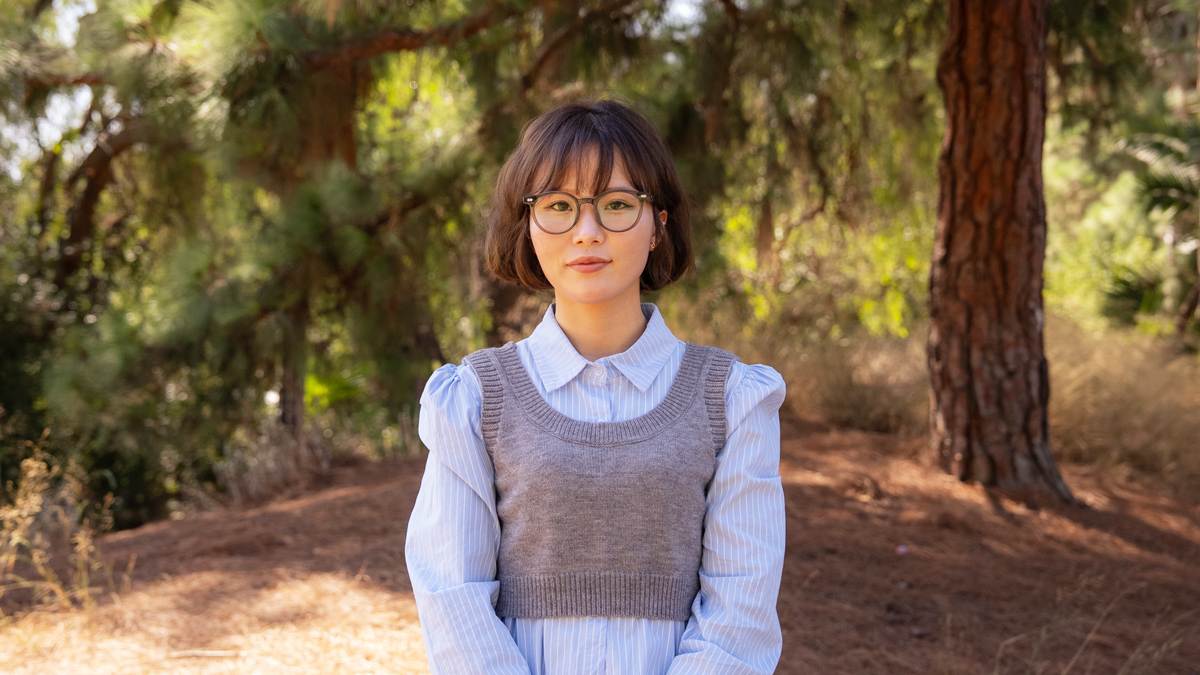
Escaping North Korea cannot be explained by the simple word “leaving.” This was especially true for me because I escaped together with my mom and my aunt. They had placed their trust in me when they gave me money for that boat. And now I was placing my trust in that boat to carry us across the sea to freedom.
I planned our escape in complete secrecy.
I bought a smuggled GPS device from China, carefully traced our route, observed the currents and tides, learned the patrol schedules of the guard boats, and figured out the blind spots of the coastal guard posts. I meticulously checked the condition of the boat and quietly prepared all the food and supplies we would need. I trained my body for the wind and the waves, and my mind for the terror of being caught.
Some nights I woke up in a panic. Other times my confidence crumbled and I thought, maybe I should give up and just accept the life I have. But in those moments, I imagined what waited at the end of the journey.
I wasn’t leaving just to stay alive. I was leaving so that I could live like a human being.
On the night we left, we climbed into my boat and pushed off into the dark water. I gripped the rudder and let the current carry us south, carefully navigating around the guard posts and patrol boats who were on the water looking for people like us.
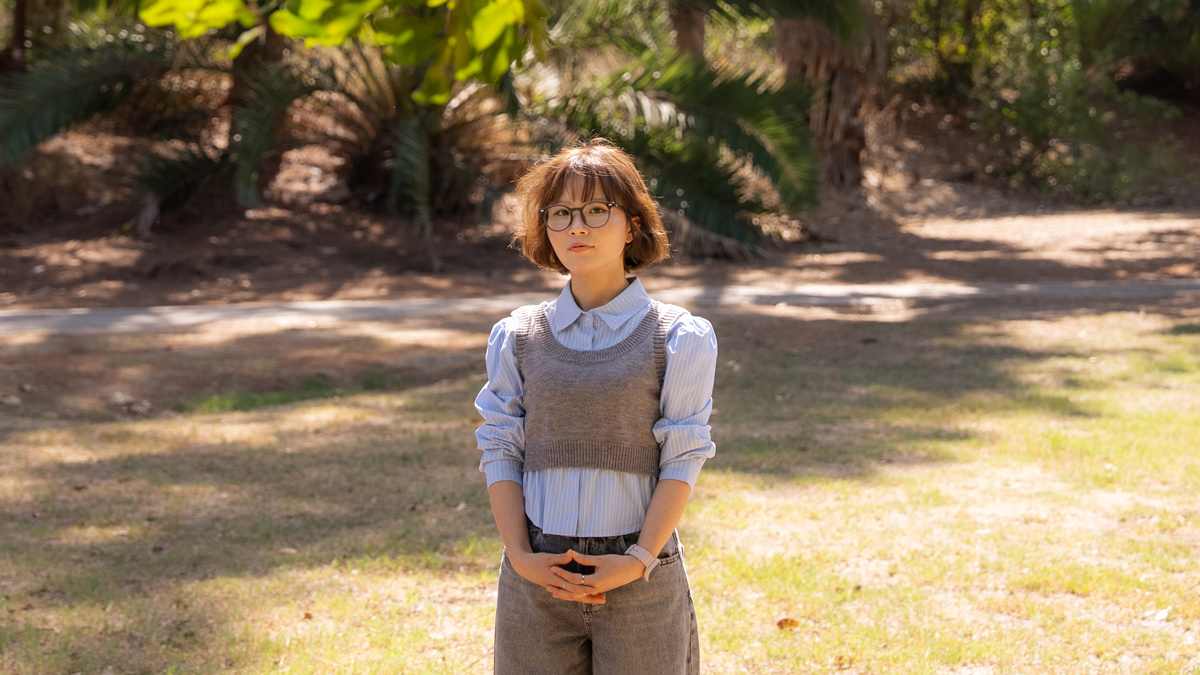
I knew what would happen if we were caught. Arrest. Endless investigations. Humiliation. Public trials. Political prison camp. And the possibility that I might lose the people I loved most in the world.
My mother and aunt were trembling with fear. I had to hide my own fear to tell them what I could only hope. We will survive. We spent the night being tossed back and forth on the East Sea. Black waves lifted our boat like a toy before smashing it down again. Every crash sent water over the sides and threatened to swallow us up.
Suddenly, a patrol ship appeared. Its lights stabbed the water, blinding us, and started coming closer and closer. It was coming for us. My chest pounded so hard I felt it might burst. I thought of the sleeping pills we had brought.
We had agreed that if capture became inevitable, we would rather take our own lives. It was a fate we preferred to execution or prison camps. As the coast guard closed in, I wondered, is it time for the pills?
But I refused to give in. We were so close. I steered away from the searchlights, surrendered the boat to the churning water, and pushed on forward.
Suddenly, the patrol vessel stopped and turned back around. They could no longer chase us. We had reached the maritime border. The sea calmed, as if it was welcoming us to freedom. And as the sun rose, we saw the outline of land.
A South Korean fisherman, hearing radio reports that North Korean patrols were in pursuit, realized we were the boat being chased. He steered his boat toward us and said, "Welcome. You are safe now."
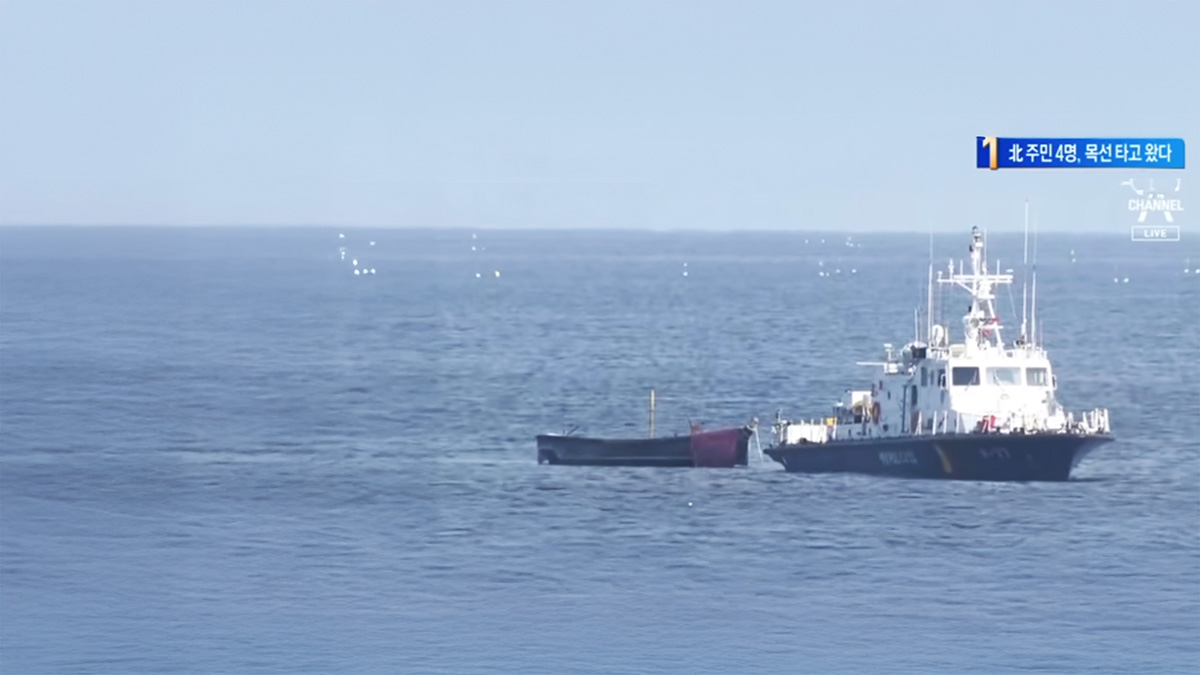
It’s been almost two years since we arrived in South Korea.
I still remember moving into our apartment and using a showerhead for the first time, experiencing hot water flowing straight from the tap. I couldn’t believe it. That day, my mother, my aunt and I took turns showering, laughing, and saying to each other, “So this is what a human life feels like.”
For the first time in my life, I could choose my studies, my job, my clothes, my hobbies—even the way I spoke—for myself. It felt like an entirely new world. We were being reborn, leaving behind a past of silence and control for a life with dignity and a future we could choose ourselves.
My mother began studying for a professional certification. And my aunt enrolled in social welfare classes to help others. I studied hard and was recently accepted into Ewha University. I have also been active in North Korean human rights activism and I even started a YouTube channel to show the world what it looks like to start a new life in South Korea.
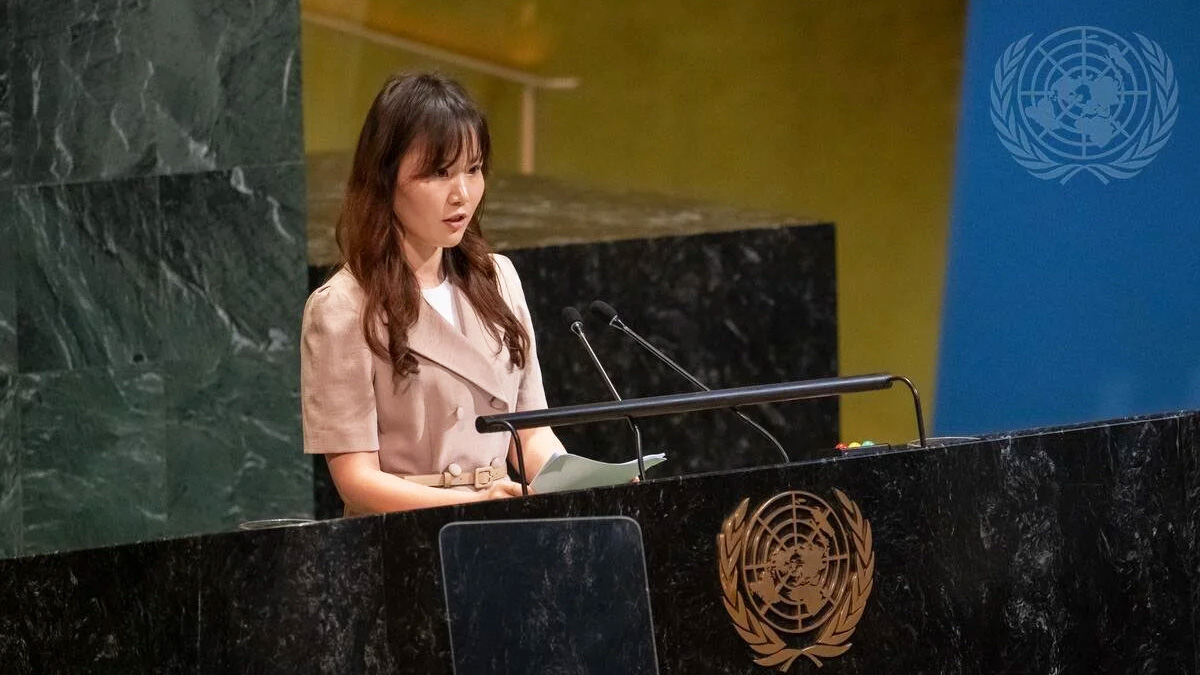
Hope is dangerous for the North Korean government. Millions of people live with anger and sadness, but even more live in resignation. Most do not realize their rights are being violated—they don’t know what “rights” are. I once believed it was normal for the state to control every part of our lives. I thought every country lived this way.
But the moment you realize life could be different, hope begins to take root. And once hope exists, change is no longer unimaginable.
My dream is that someday North Korea will be a place where young people choose their own paths, where no one is punished for their words, and where every person lives as the true owner of their life. While so much of North Korea’s reality is dark, change is already happening. And what sparks that change is information. A single truth from the outside world, a glimpse of what life could be, can plant a seed of doubt, or ignite a spark of hope.
That’s why I speak out. If I don’t tell my story, who will tell it for me? If I stay silent, will the death of my friends, and the suffering and starvation my family endured be forgotten?
Right now, in North Korea, there is someone just like me—sitting in a dark room, secretly watching a South Korean broadcast, quietly wondering: Could I also live like that?
I want my story to prove that this hope can become a reality. I want to stand in the middle of that change. Not just as someone who escaped to enjoy freedom, but as someone determined to one day share that freedom with all North Korean people.
Freedom is not given, but it is something we can achieve. With your support, we can write a future where all North Korean people are free.
Foreign media gave Gyuri a glimpse of the outside world—and the courage to seek freedom.
Increasing North Korean people’s access to outside information is one of the most effective levers for change in the country. And that is exactly what we’re doing at Liberty in North Korea
In partnership with North Korean defectors and engineers, LiNK develops tailor-made technology, tools, and content that help people inside the country access more information more safely. These glimpses into the wider world build people’s resilience to the regime’s propaganda, and emboldens them to imagine a different future for themselves and their country.
Help fuel work that’s directly supporting North Koreans driving change on the inside.




